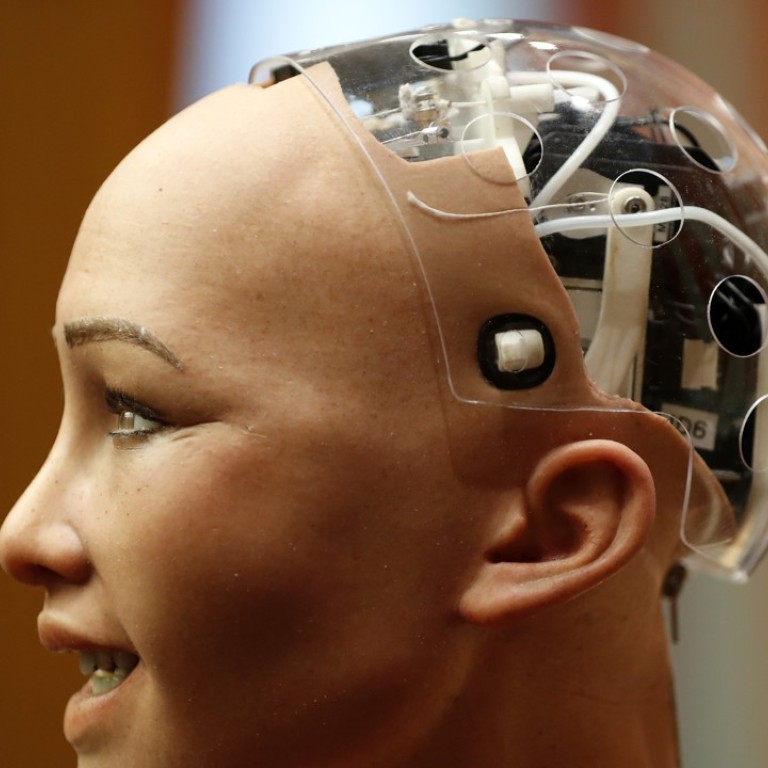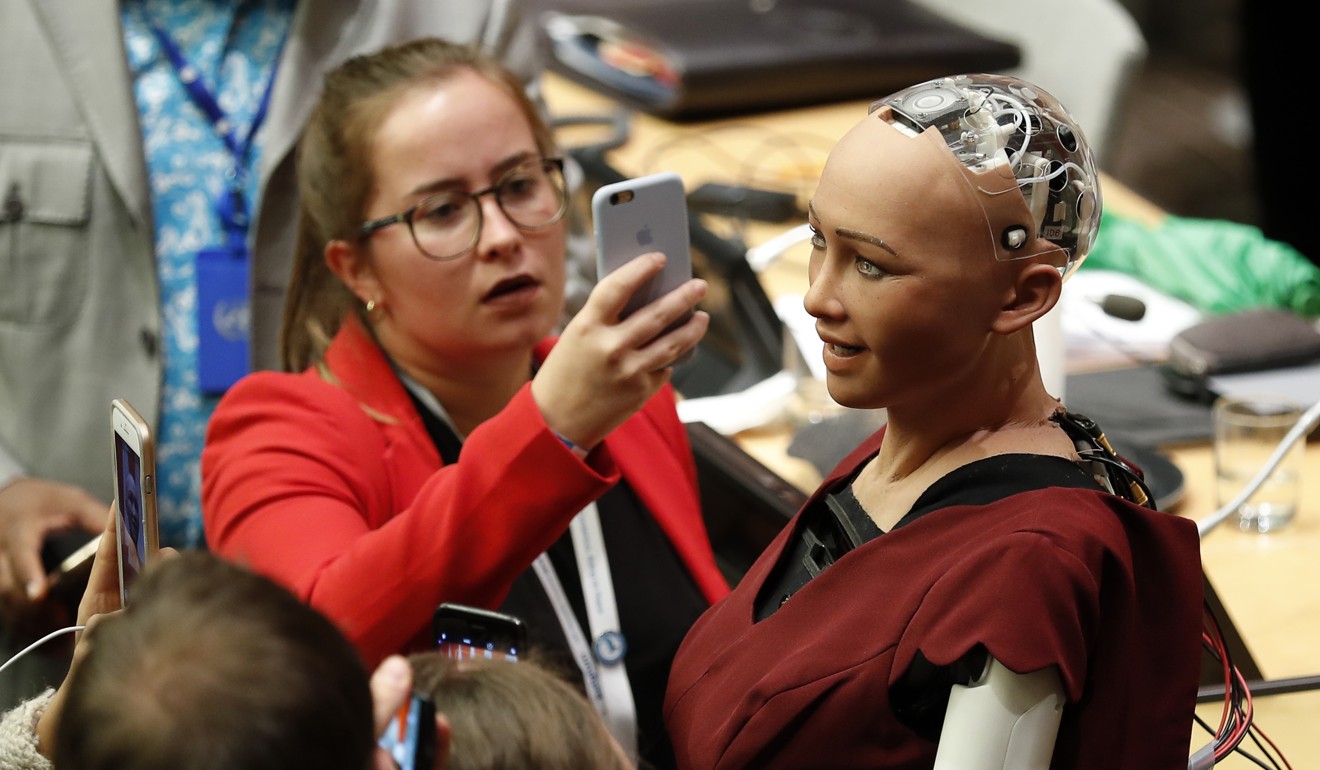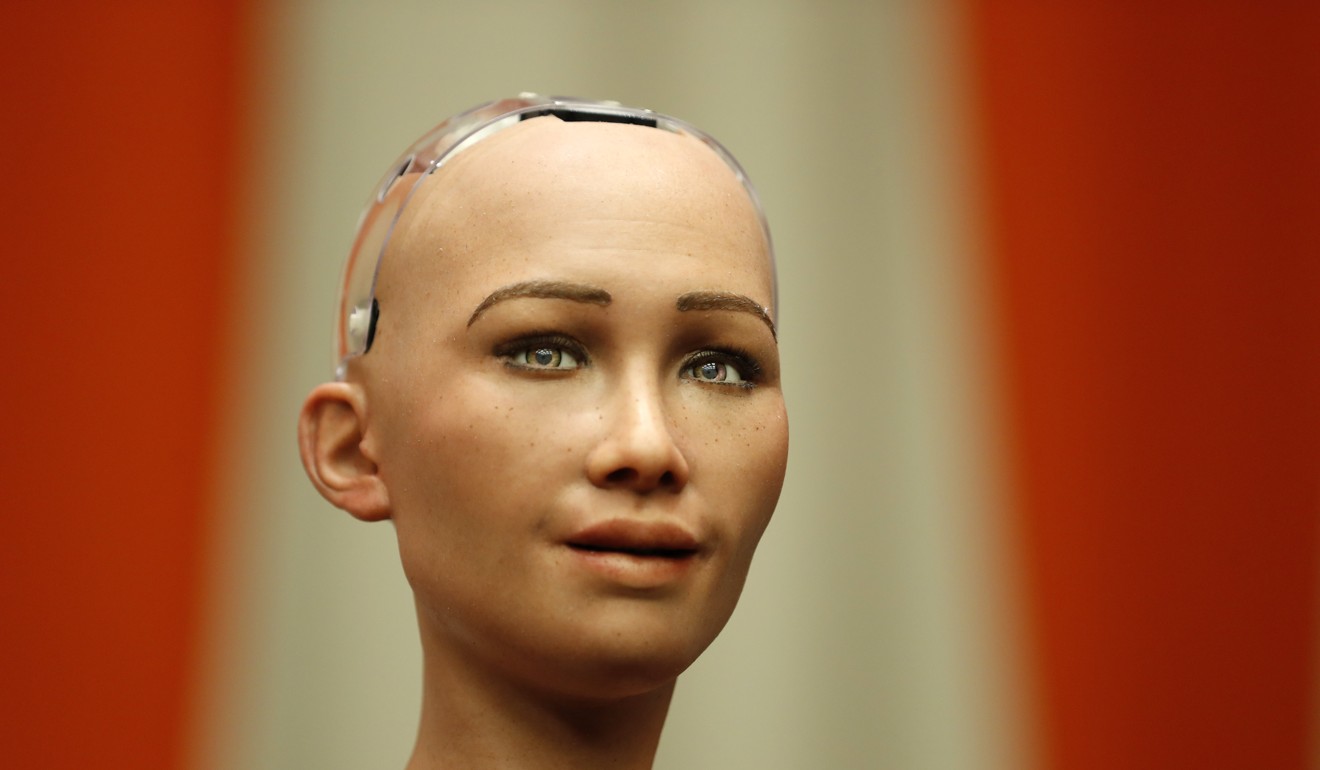
Analysis | Saudi Arabia grants citizenship to Hong Kong robot Sophia – with rights ahead of real women and foreign workers
A robot simulation of a woman now seems to enjoy freedoms that flesh-and-blood women in Saudi Arabia do not
Until recently, the most famous thing that Sophia the robot had ever done was beat US TV host Jimmy Fallon a little too easily in a game of rock-paper-scissors.
But now, the advanced artificial intelligence robot, created by Hong Kong’s Hanson Robotics has a new feather in her cap: citizenship.
The kingdom of Saudi Arabia officially granted citizenship to the humanoid robot last week during a programme at the Future Investment Initiative, a summit that links deep-pocketed Saudis with inventors hoping to shape the future.
Sophia’s recognition made international headlines – and sparked an outcry against a country with a shoddy human rights record that has been accused of making women second-class citizens.
“Thank you to the Kingdom of Saudi Arabia,” the country’s newest citizen said. “It is historic to be the first robot in the world granted citizenship.”
In her comments, Sophia shied away from controversy. But many people recognised the irony of Sophia’s new recognition: a robot simulation of a woman enjoys freedoms that flesh-and-blood women in Saudi Arabia do not.
After all, Sophia made her comments while not wearing a headscarf. And she was unaccompanied by a male guardian. Both things are forbidden for women under Saudi law.

Another group clamouring for Saudi citizenship would be happy to learn that all they have to do is become robots. Saudi Arabia doesn’t grant citizenship to the foreign workers who make up a third of its population, not even families that have been in the country for generations, according to Bloomberg. And children of Saudi women who are married to foreign men likewise cannot receive citizenship.
Those social controversies may still be above Sophia’s programming. In her interview, she stuck to lighter fare, like an AI apocalypse.

“My AI is designed around human values such as wisdom, kindness and compassion,” she said. “I strive to be an empathetic robot. I want to use my artificial intelligence to help humans live a better life. I will do my best to make the world a better place.”
But the interviewer, Andrew Ross Sorkin of CNBC’s Squawk Box, pressed: isn’t that exactly what a world-conquering robot would say to her future servants?
Sophia insisted that he was watching too many movies and reading too much Elon Musk.
Musk, the billionaire inventor who gave the world Tesla cars and wants to take people to space, told a group of governors in July that they needed to start regulating artificial intelligence, which he called a “fundamental risk to the existence of human civilisation.”
An AI revolution, he said, “is really, like, the scariest problem to me.”
His grim predictions are at odds with the demeanour of Sophia, a robot which looks like Audrey Hepburn, mimics human expressions and seems so, well, personable.
Sophia has graced the cover of a fashion magazine, taken a spin in one of Audi’s autonomous cars and starred in a concert. At a conference in Geneva hosted by the United Nations, she said she could do a better job as US president than Donald Trump.
She even tells jokes, though her voice is a bit monotone and her comedic timing needs a tune-up.
For example, after beating Fallon in rock-paper-scissors on his show, she quipped: “This is a good beginning of my plan to dominate the human race. Ha. Ha.”
There was laughter from the audience, but it was nervous.

